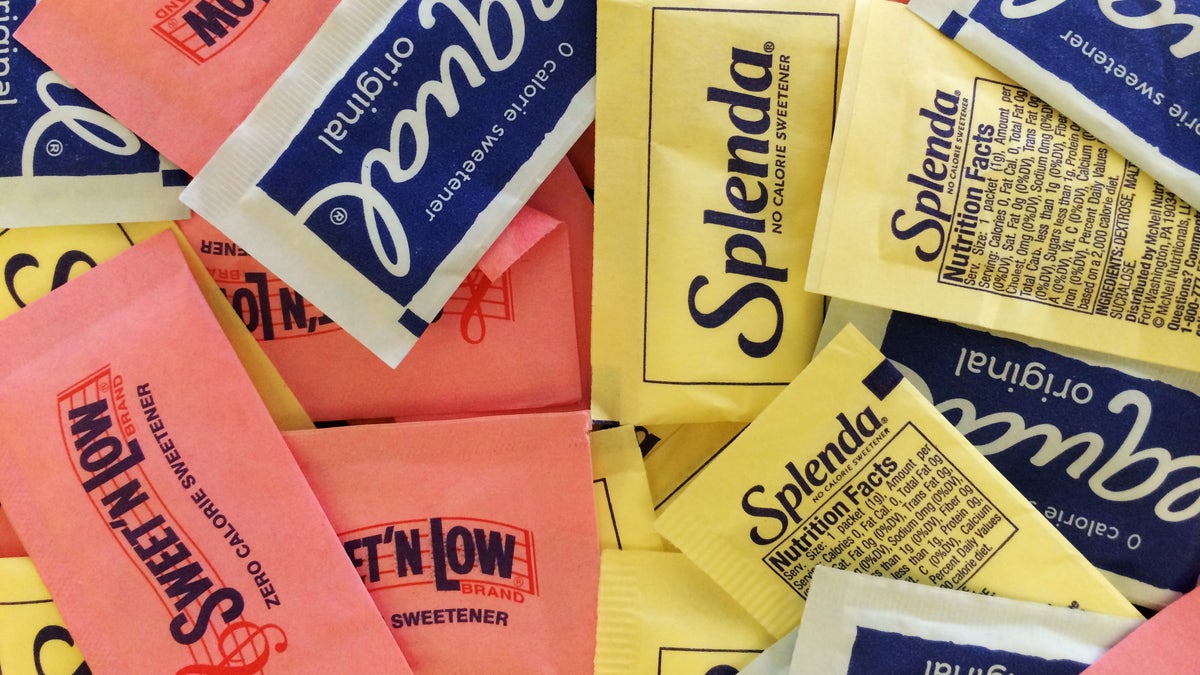
(AP Photo/Jenny Kane)
Wading through information on artificial sweeteners can be tricky — even dietitians disagree on just how benign such sugar substitutes are.
There are six sugar substitutes that the Food and Drug Administration (FDA) has approved as safe, Lauri Wright, a spokeswoman for the Academy of Nutrition and Dietitics, and an assistant professor at the University of North Florida, told Fox News. They include saccharin, aspartame, sucralose, stevia, neotame, and acesulfame K. “There’s been a lot of sensationalism around sugar substitutes,” Wright noted, but all approved substitutes have been through rigorous testing to ensure their safety.
HOW TO QUIT SUGAR FOR GOOD
Ashlea Braun, a dietitian at The Ohio State University Wexner Medical Center, takes a more cautious approach: She noted that links between artificial sweeteners and cancer have only been shown in animal studies — ones where animals had been fed extremely high doses of sweeteners — but that newer research may suggest artificial sweeteners could still affect our appetite, weight, or microbiome (the gut in our bacteria, which studies have linked to the state of our overall health).
But when can artificial sweeteners be part of a healthy diet? Fox News spoke to Wright and Braun to get their tips on using artificial sweeteners without sabotaging your health:
1. Use artificial sweeteners to help you eat healthy food.
Use artificial sweeteners to help you consume healthy foods that you might not otherwise found palatable, such as a bowl of plain oatmeal, Braun said.
2. Swap sugar-rich foods for artificially sweetened versions.
Similarly, it’s fine to swap out sugar-rich foods and drinks — such as sodas — with diet versions that are artificially sweetened, Braun said, to help cut down on overall sugar consumption.
THE BEST SNACKS TO EAT IF YOU'RE CRAVING SUGAR
3. But make sure you’re not replacing healthy drinks with ones with artificial sugar.
Even if you’re enjoying diet sodas, though, make sure you’re not using them to replace other healthy drinks, like water or skim milk, Wright said.
4. Don’t exceed the acceptable daily intake.
Don’t go over the acceptable limit the FDA set on artificial sweeteners — but don’t worry, it’s hard to do. For instance, you’d have to have over 17 cans of Diet Coke to exceed the daily limit for aspartame, Wright said.
FOLLOW US ON FACEBOOK FOR MORE FOX LIFESTYLE NEWS
5. Avoid them if you are pregnant or have certain pre-existing conditions.
People who should always avoid artificial sweeteners? Pregnant women, or those with the genetic disorder PKU, which prevents them from breaking down phenylalanine, found in certain sugar substitutes such as aspartame.
